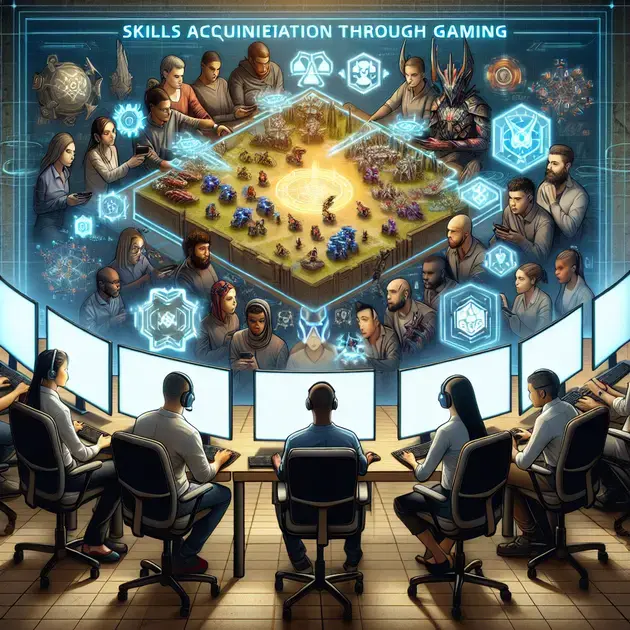These skills include problem-solving, strategic thinking, teamwork, and decision-making. They are not only beneficial within the virtual world but also transferable to real-life situations.
The complex nature of MMO games is believed to be a key factor in the development of these skills. Players must navigate intricate virtual worlds, collaborate with other players, and overcome challenges. This requires critical thinking and the ability to adapt to dynamic environments.
Furthermore, MMOs often involve teamwork and cooperation. Gamers must work together to achieve common goals, strategize against opponents, and communicate effectively. These experiences improve teamwork, communication, and leadership skills, which are highly valuable in professional settings.
Gaming can also contribute to the development of social skills and emotional intelligence. MMOs provide platforms for individuals from diverse backgrounds to connect, interact, and build relationships. Through these interactions, gamers gain exposure to different perspectives and cultures, fostering empathy and understanding.
Recognizing the potential of gaming as a tool for learning and skill development is crucial. Educational institutions and employers can tap into the benefits it offers by embracing gaming as a constructive activity.
However, it is important to maintain a healthy balance and avoid excessive gaming. Gaming addiction can have negative consequences, such as neglecting personal responsibilities, social isolation, and adverse physical health effects. It is important to practice moderation and responsible gaming.
In conclusion, new research supports the idea that gaming, particularly MMOs, can have numerous positive effects. The skills acquired through gaming can be applied in real life and enhance professional capabilities. Understanding and embracing the potential of gaming as an educational and skill-building tool is essential.
